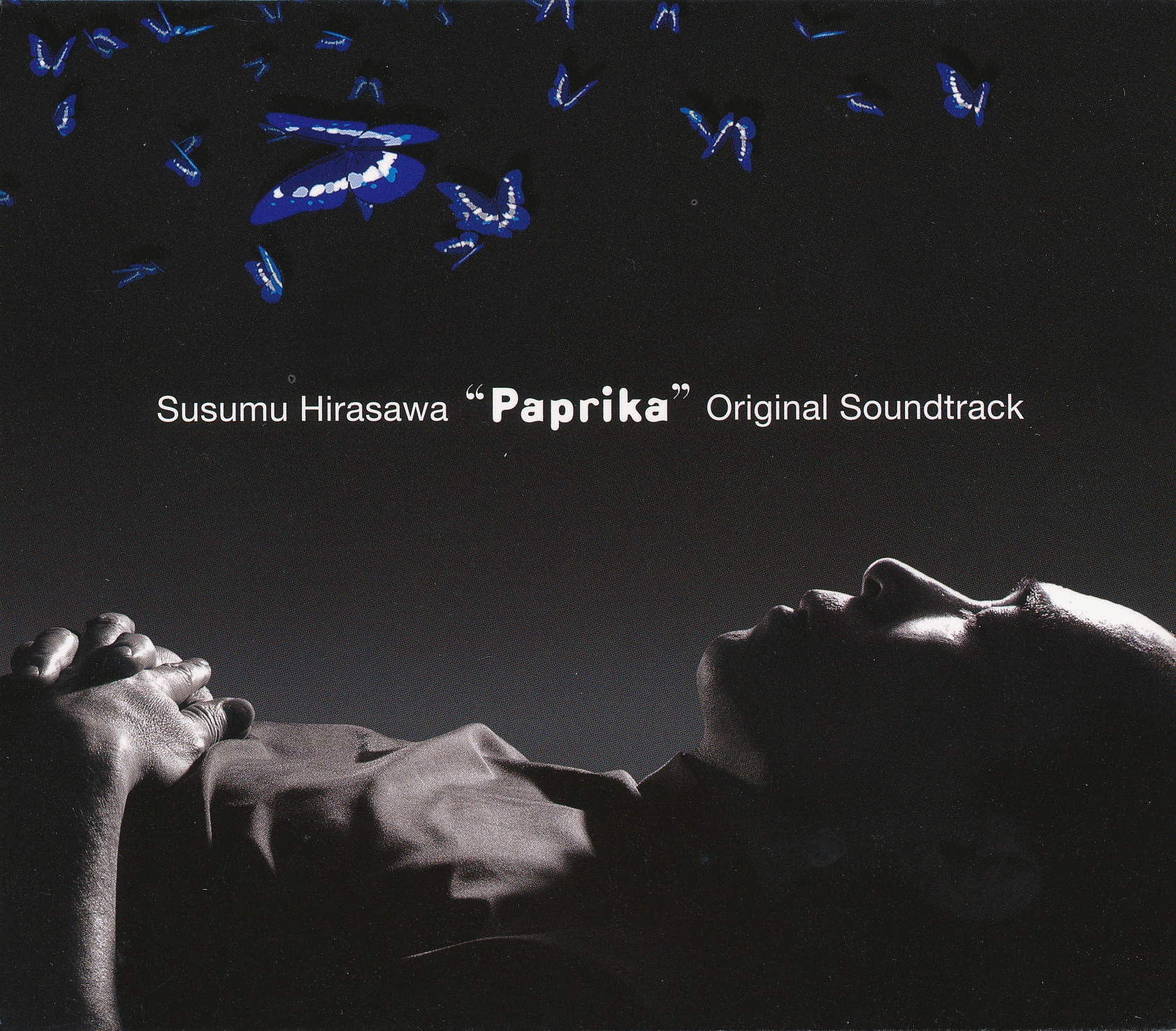“Paprika” Original Soundtrack Review – Awesome Psychedelic Chaos
| Album Title: | “Paprika” Original Soundtrack |
|---|---|
| Anime Title: | Paprika |
| Artist: | Susumu Hirasawa |
| Catalog Number: | CHTE-0038 |
| Release Type: | Soundtrack |
| Release Date: | November 23, 2006 |
| Purchase at: | CDJapan, Amazon |
Review: Paprika throws a deluge of sights and sounds so overwhelming that one has difficulty distinguishing between the surreal dream-like sequences and reality. These scenes mesh together so well that endless hallways and parades featuring household objects and animals no longer seem out of place. To achieve this seamlessness, Director Satoshi Kon calls upon composer Susumu Hirasawa’s talents to write music that would depict this blending of two realities. Hirasawa succeeds with pieces that defy convention to it brings the chaos of Kon’s vision to life. His unconventional compositions may be jarring, but they deliver an unforgettable listening experience.
If this album is a swimming pool, then “Parade” would be Hirasawa tossing us into the deep end of the movie’s muddled reality. The eponymous scene is straight out of a surrealist work as a procession of dolls, frogs, and various inanimate objects and symbols march steadily onwards. “Parade’s” cacophony unveils the outlandishness of this spectacle. Its chants are hideous, warping as the piece progresses while the bombast of drums, cymbals, and various voices flood your ears. It’s a chaotic, alien scene manifest.
“Parade’s” bombast makes way for “Mediational Field,” an energetic upbeat track with a psychedelic air. Its highlight is a calming electronic voice modulator that creates a pleasant, if bizarre, futuristic atmosphere. Later on in the soundtrack, “A Drop Filled with Memories” adapts “Mediational Field’s” theme by bringing about a mood that is even more subdued. The blips of sound and background instruments gently place you in a calm environment fit for quiet contemplation and introspection.
But that moment of tranquility doesn’t last. The album’s quirks and energy return in full force with “Chaser,” a track that takes “Parade’s” disorienting chanting to the next level. “Chaser’s” strength is in its intensity as its anxiousness and urgency borne through the tempo drives the listener relentlessly onward. While exciting, it’s a piece best handled in small doses. Hirasawa ensures that this piece doesn’t overstay its welcome.
Although the album’s unconventional tracks grab the headlines, there are pockets of convention, most notably in “Welcome to the Circus” and “Lounge”. The former lives up to its name with a bombastic melody that brings to mind a procession of clowns and elephants set to a marching rhythm that spares not the brass. “Lounge’s” piano, bass, and a vibraphone bring a complete change in mood as they evoke an image of a jazz lounge where one goes to relieve stress. Other tracks include “Escapee,” which channels “Chaser’s” tense atmosphere without the strange sound effects and “The Shadow’s” dramatic, crescendoing choruses and drum rolls which herald the imminent calamity.
However, the track to close it all out delivers brilliantly, with the massive finale in “The Girl in Byakkoya – White Tiger Field”. Its use of the “Mediational Field” melody bookends the soundtrack and the wild, dazzling electronica harkens back to the chaotic, psychedelic scenes in the movie. But a calm wave eventually washes over the music, bringing with it a sense of closure as reality sets in to resume its course once more.
While I was initially put off by Hirasawa’s unconventionality, slowly, but surely, I warmed up to how its dynamism kept me constantly engaged. Not that the contextual biases hurt either. With that in mind, Paprika‘s soundtrack is an evergreen album, providing that nice change of pace as its weird vocalizations and electronic melodies cultivate those psychedelic delights as it transports me into an alternate reality.
Rating: Excellent


Hirasawa is one of those rare composers where you can instantly recognize his music due to his unique style. It’s too bad he hasn’t gotten much work since Kon’s death. Hopefully Yume-Miru Kikai will one day be released…
Fun fact: I read a while ago that Hirasawa used Zero-G’s Lola on this soundtrack, marking the first time a Vocaloid was used in film music.
“Paprika” OST is really a rare brilliant. It’s super eclectic, but not it just usual terms or forms. It’s mixing up kinda unmixible. You know, not the way like my the most favourite Yoko Kanno is doing, for example. Like classics with synthwave, strange beats and chaotic stuff with melodic and harmoncal awesomeness. Really rare. I still remember when I first time listened to it. I was kinda… shoked. I was sitting down like an idiot with my open mouth. No wonder Susuma Hirasawa is in my top-10 anime composers, as you already know.
Pingback:People’s Choice Top 20 Anime Composers… of all time! | Anime Instrumentality Blog